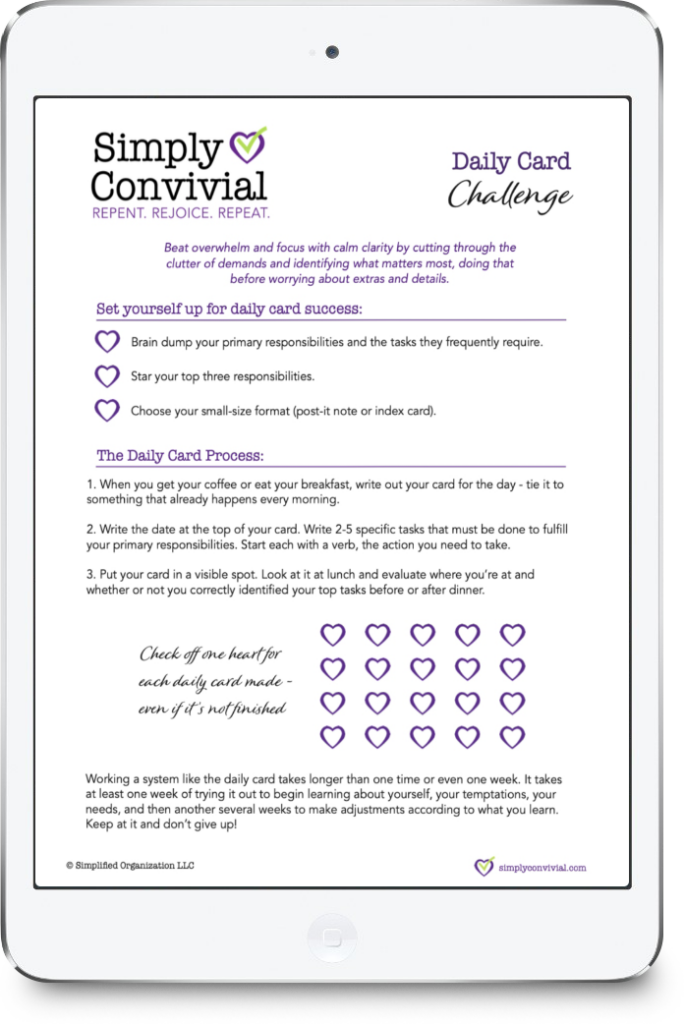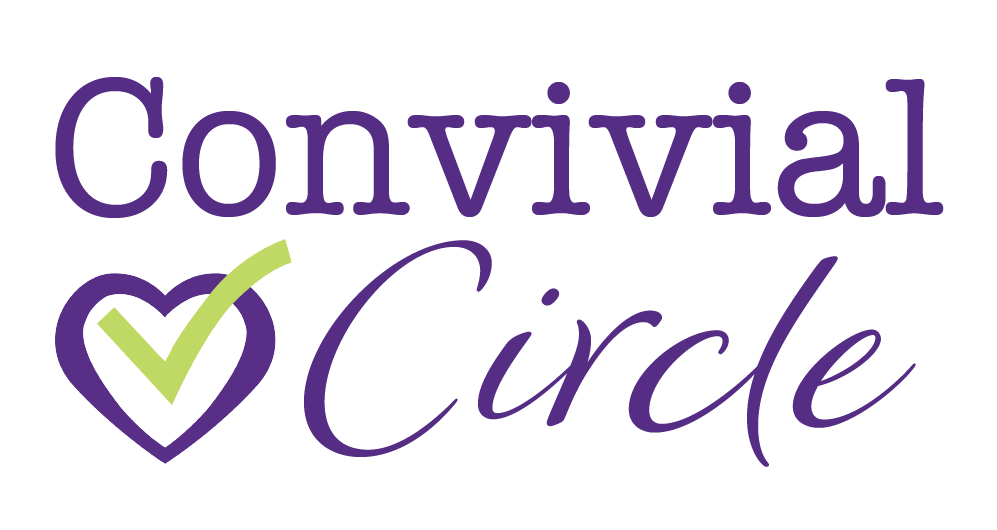Plan the Night Before: A Hack to Improve Your Plan
Write your plan the night before and supercharge your day.

The day was over. The kids in bed, the house quiet.
Time to sigh, breathe deep, and decide how to relax.
I glanced down and I caught sight of my daily index card plan I’d made that morning.
Ugh. I’d totally forgotten about it after the hubbub of the day had begun. I had begun with such high hopes and ended up feeling like I’d simply held on for dear life.
Oh well. I thought. That’s just my season of life right now.
Since I’ve started this blog, I’ve told people to be sure to plan their days. Just 10 minutes in the morning makes a big difference.
I was wrong.
What really makes a big difference is if you make your daily plan the night before.
Making some sort of plan first thing in the morning will probably help more than making no plan – as long as you look at it during the day.
A plan made during the evening, however, has much more sticking power for two very potent reasons.

The problem with plans written in the morning
I think there are two kinds of people.
I am of the first kind: a lark. I love mornings. I love the smell of the air in the morning. I love the feeling of a fresh start and a blank canvas full of potential. I get mentally revved up thinking about the day in the morning. I am full of optimism and energy in the morning, especially if I have some time before the kids are up.
You know what that means?
The plan I write in the morning is totally unrealistic. It won’t work.
You might be the second kind: an owl. Owls prefer the peace of the dark night. While larks love mornings before the kids are up, owls come alive after the kids are in bed. In the morning, owls start off a little groggy, a little slow, a little fuzzy. It takes them time to wake up and get moving.
The plans owls make in the morning will be irrelevant or incomplete. They won’t work.
But both kinds of people can make an effective plan – a more effective plan – the night before.
A plan takes 10 minutes, maybe less.
- Look at this day’s list. Mark off what can be marked off. Jot a note or two about what happened today. A little reflective journalling, even if only 10-12 words dashed off, brings your mind to your day, your life, and your priorities.
- Look at the calendar. What’s coming tomorrow? What’s coming the rest of the week? What do you need to do tomorrow to be ready? Add that to tomorrow’s note, whether it’s an Evernote note or an index card or a bullet journal page.
- What did you not do today that is important enough to be moved to tomorrow’s priorities? You only get three priorities per day, so choose wisely. If you didn’t do it today, why didn’t you? Will you actually do it or do you need to delete it or delegate it and adjust your expectations?
- Look at your weekly or interval task list. What on that list would be the best choice to pick for tomorrow? If your 3 Most Important Things aren’t already selected, fill in with items from that list.
- Bonus: Name your day. I like to use the formula “Today is a x day” and fill in x will something that will keep me focused where I need to be focused. “Today is a school day.” “Today is an enjoy the ride day.” “Today is a fast-paced day.” “Today is a sick day.” This statement helps me align my expectations for the day.
Why plan the night before
In my unresearched opinion and personal experience, I see two reasons why the plan made the night before is the better plan.
First, the evening plan is more realistic and prioritized.
At the end of the day, you have a better sense for how things go. You aren’t looking at a blank slate of a day just after a good night’s sleep. You have to start by updating your list for that day, and that motivates you to make a plan that hits your priorities and doesn’t add fluff you don’t really mean. Workout video? Really? When? Your perspective in the evening is clear and practical, not optimistic and not groggy.
Second, the evening plan has time to settle.
Of course you do have to look at your plan in the morning, but you benefit from being able to sleep on the plan. Write the plan, then sleep. While you sleep, your mind processes the previous day and that includes the plan you just made. When you wake up, it’ll be easier to focus because 1) your plan is ready to go, and 2) your sense of what is in the plan is keener.
The morning pressure is also reduced. You don’t have to be creative when you’re barely awake. You don’t have to create a brilliant plan before coffee. You can use your coffee-drinking time for reading or for writing, for a hobby or for devotions. Simply wrap up that time with a brief glance at your already-made list and you’re ready for the races.
Plus, if you sleep in, you’re not totally out of sorts. In the morning all you need is a 1-minute-or-less glance at your daily plan and you’re good to go.
Know Thyself
Whenever my morning-made plan didn’t pan out, I blamed my execution or my forgetfulness.
But while I was researching for Work the Plan, I came across this habit of preparing your plan the night before. I knew selecting my outfit the night before helped. I knew choosing what was for dinner the night before helped. Weren’t those little plans?
I had to try it. I started making my plan the night before and saw instant improvement in my fulfilling the plans – because the plans I’d made were realistic and focused in a way my morning plans never were.
I am so glad I did, and I know you will be too, if you try it.
Let me help you become a productive, cheerful homemaker.
- Get gospel-focused advice and encouragement.
- Level up your plans and progress, one step at a time.
- Find accountability with likeminded women without any social media drama.
- Experience the homemaking mentoring you’ve always wanted.
- Learn to love being a homemaker!

Get the important things done each day.
Take the daily card challenge and become more effective in your home.



